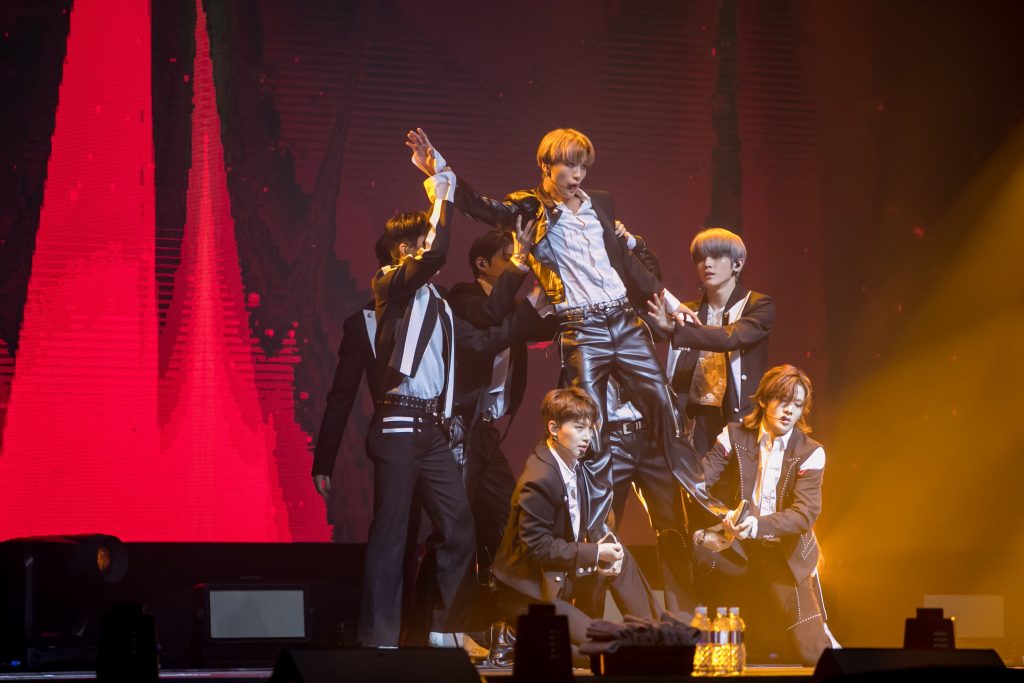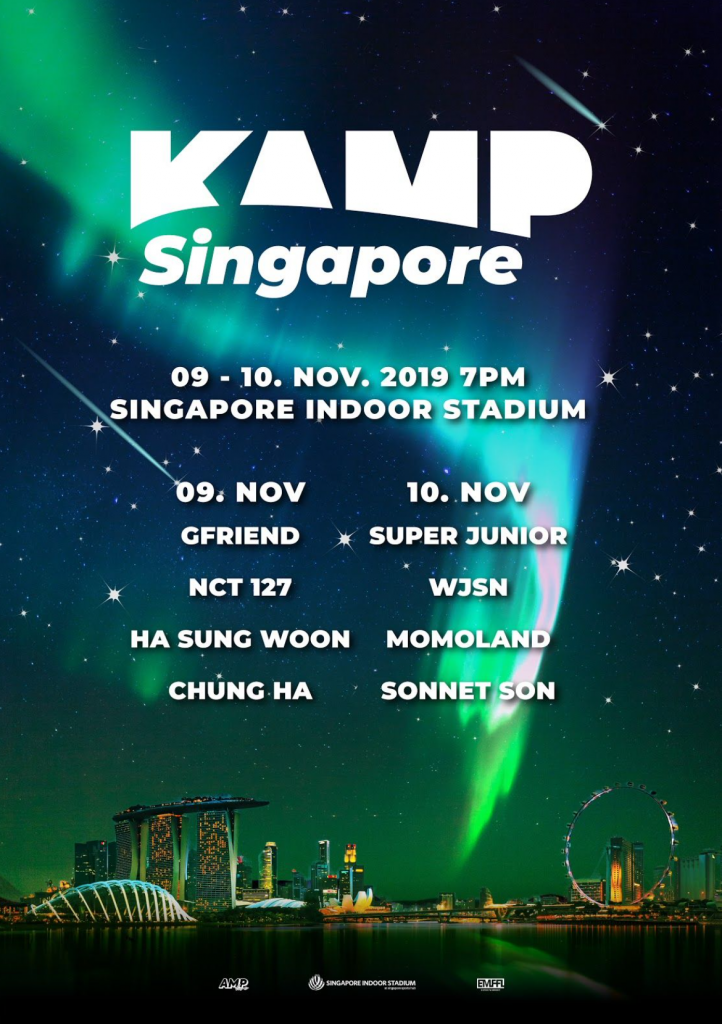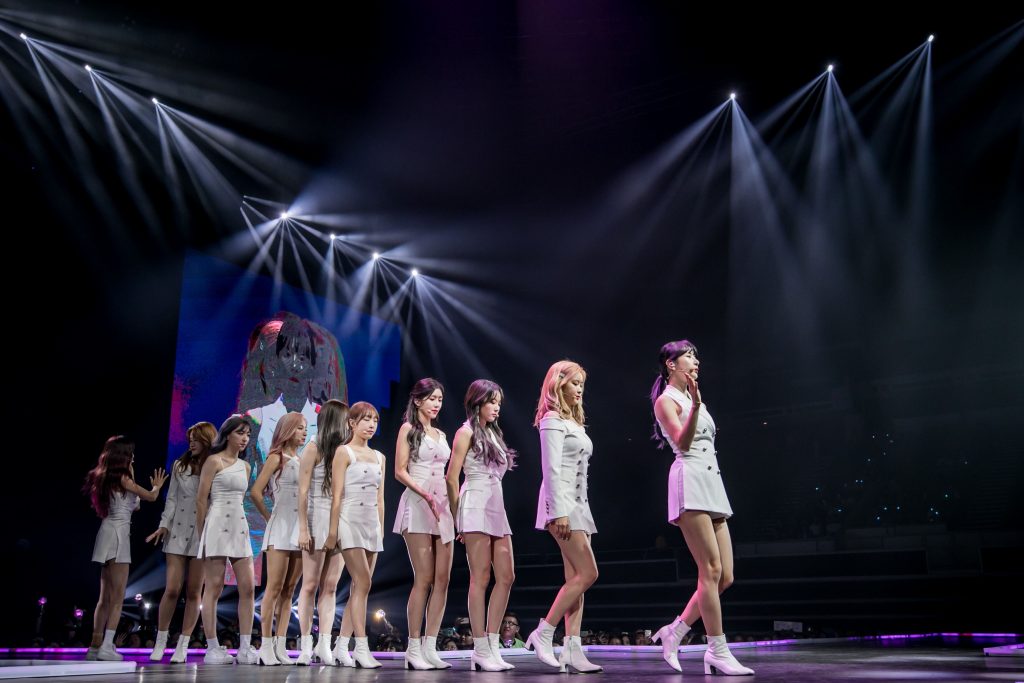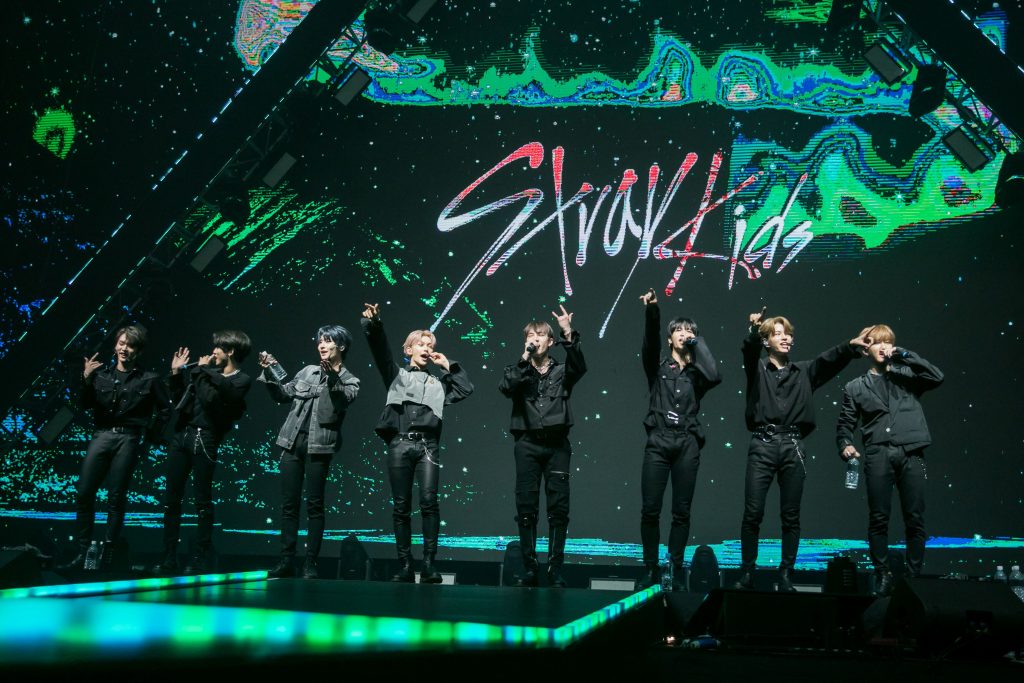
Most of us are not foreign to the K-pop concert atmosphere; it is deafening cheers, hot temperatures, and heightened excitement zapping through the air. It is packed venues with bright, flashing lightsticks in almost every fan’s hands. It is having adrenaline pump through your body, an uncontrollable smile take over your face, and the irresistible want to be up dancing on your feet. More so, when the line-up includes artists like Chung Ha, NCT 127, Super Junior, and WJSN. Even more so when the first concert is held in a location like Singapore, where K-pop has been reigning for more than a decade now, and loyal Hallyu fans are aplenty.
And yet, KAMP Global: Singapore 2019 fell short of all these expectations. The stadium has glaringly obvious empty seats on both days (the second more than the first), and pockets of audience members were more invested in scrolling on their phones than paying attention to most of the acts. Performers such as GFriend and Ha Sung-woon barely got the screams and applause they deserved.
To be fair, there was a lot KAMP did do to try and deliver the two-day K-pop festival they promised. During the press conference — which was just a day before the festival — Timothy Kim (the CEO of AMP Live) explained how KAMP Global had set out to be the first K-pop festival in the world. (I would have loved to ask him what they thought of KCON then, but alas, we weren’t given the opportunity for any questions. Go figure.) Along with a Red Carpet event, each concert day with a came with a long list of pre-concert events, including Random Play Dance stages, cover dance stages, and auctions of attending idols’ items. There was even beer being sold during the concert itself, never mind that most of the audience was too young to buy any of it.

It was not as though the artists were not popular enough. Over the two nights, KAMP was jam-packed with well-known artists from start to finish. Although there were artists that were much better at fan interactions than the rest — WJSN, Super Junior, Sonnet Son, NCT 127, and Chung Ha — it was difficult to find faults in the well-choreographed acts of any of the performers. It was apparent that all of them had practiced hard for the KAMP stage. Despite that, fan support seemed lacking, rising only for a select few. In particular, Super Junior, Chung Ha, Sonnet Son, NCT 127, and Stray Kids.
In my opinion, this was due to two reasons. The first was the tickets’ price. The second was due to KAMP’s marketing (or the lack thereof).
Tickets ranged from $100 to $295, whereby seats with a reasonable view were only those above $180. Imagine paying all that money just to see your favourite idol sing five to eight songs.
During the press conference, KAMP was right to say that the K-pop festival market is untapped. But that is for a reason. K-pop fans, regardless of the number of K-pop artists they might listen to, are usually devoted to one or two groups. These are the groups they will fork out the money for, and the ones they will go crazy for. Put a K-pop group’s concert next to a festival where they only perform a few songs, and the fan’s choice is obvious. Especially when they are priced the same. Moreover, Singapore is a popular spot for K-pop concerts. It is not unreasonable to expect idols to come back with their own concert tour dates in the country.

The larger culprit, though, would be the lack of marketing. When Seoulbeats was invited to attend the concert, I sheepishly admitted to fellow editors that I had not heard of the festival happening till the invitation. Imagine my surprise when they shared the same sentiments. This, coming from people who consumed and wrote about K-pop and probably had social media algorithms that were catered to it.
It is a shame that a carefully-curated event, almost impeccable from start to finish, failed to market the event so much so that there were empty pockets of seats. Of course, dedicated fans would be aware of the activities of their favourite groups. However, general K-pop fans would not really be able to access the information. A lack of social media content, YouTube advertisements, and physical banners became increasingly glaring as the days built up to the festival. In fact, I do not recall them despite having a website before the festival. The fact that pre-concert activities’ details were only released a day before the concert already speaks volumes.
In spite of all this, it oddly felt like KAMP had still been a success. Because the impression I got from the three-day experience was that the attendance of one festival stop did not matter. After all, Singapore was only the first stop. Festivals at Hanoi, Los Angeles, and Maui are already lined up for next year. It is important to note, however, that KAMP Global is not just about bringing K-pop to fans.

It is more than that. It is an excellent business opportunity, with KAMP being heavily sponsored by brands like Billboard and Zany Bros. It is the perfect opportunity for the spread of “soft power”, as said by Kim himself, and that is evident in their partnership with the Korea Public Diplomacy Association. KAMP global is meant to be so influential that the figureheads of all their eleven sponsors and partners flew down to Singapore for a twenty-minute press conference.
There was a weird KAMP-is-the-best agenda that was consistently spread by each act during the festival. It is not uncommon for artists to thank the management for inviting them for a K-Pop festival. It is bizarre when every artist showers the management with praise, though. We could not help but notice the repeated emphasis that each performer made on how KAMP was the best festival out there. The constant echoing of “Let’s go Kamping!” did not really help either. Admittedly, it was funny when Chung Ha almost forgot to promote KAMP, and hastily did so as she was exiting the stage.

All in all, KAMP Global is trying to break into a scene that has (supposedly) never been broken into before. Like any other corporation, the K-Pop festival is economically and politically driven, but it might help to relate and understand their audiences more. Till then, I look forward to the KAMP Global: Singapore 2020. Perhaps, after having gone around globally, there would be little need for marketing, Perhaps, then, there would be deafening cheers and zapping excitement I had been looking for this year.
(KAMP Global. Images via: KAMP Global)


